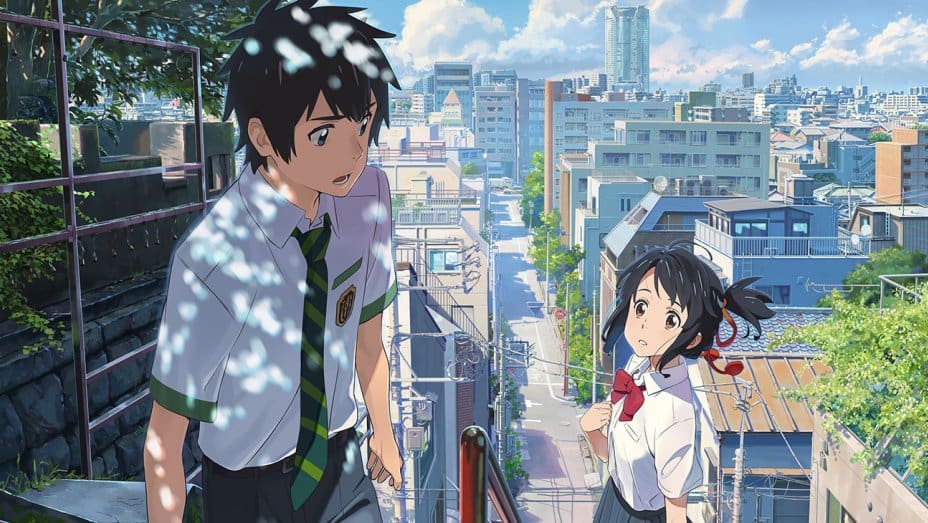Your Name. — Matt Gilbert
Filmmaker Makoto Shinkai has always had a fascination with the distances between people. His 2007 made-for-TV anime film, 5 Centimeters Per Second wowed Japanese film festivals and critics with a punishing meditation on the cruel erosion of relationships over time and distance—to the point that two best friends who once would have done anything for each other can pass each other on the street as total strangers. 2016’s Your Name. was his first theatrical release, examining a very different kind of relationship divided by time and distance. Critics, audiences and I all agreed: Shinkai’s talent is real. Because this film is a masterpiece.
Your Name. is impossible to label or define without conceding the secret weapon that makes it special. The film is many things at once: a body-switching fable, a love story, a disaster, a contemplation on relationships and existential loneliness, brought to life with stunningly-detailed animation and painstakingly honed to perfection. It takes cosmically abstract phenomena and translates them into effortlessly relatable sensations. Every component of this film (the storytelling, the cinematography, the animation, the color palette, the editing, the voice acting, the soundtrack by Radwimps, etc.) not only works, but it also meshes seamlessly with every other component to make Your Name. a uniquely overwhelming experience. An experience I cannot recommend enough.
Your Name. is not a companion-piece to 5 Centimeters Per Second, it is a counterargument. It even invokes that film in a blink-and-you-miss-it shot in its epilogue. Your Name. contends that, yes, some people are so important to us that the relationship does transcend the limits of time and space. That we can escape the suffocating and cynical loneliness of independent adult life if we only build up the courage to make a connection.
As the credits rolled in the theater over Radwimps’s “It’s Nothing,” I knew I had a new favorite film of all time. I’ve returned to this film more times than I can count in the last two years. It did not merely explore the emotions of these characters, it made me recognize them in myself. It made me invest more in the connection between Mitsuha and Taki than I ever had in a movie before. It ends the most thematically miserable scene I have ever experienced in a movie by undercutting it with a final 20 seconds of pure uplifting hope. A year after graduating from college, woefully anxious about the uncertainty of careers and my relationships, this was exactly the movie I needed in my life.


